Resources
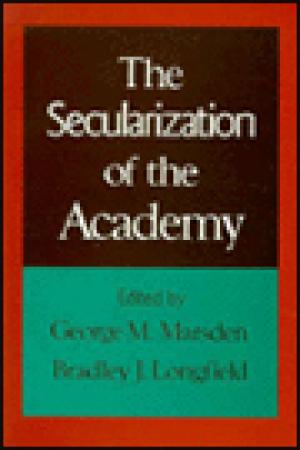
A searching exploration of a century and a half of higher education in American culture. This book will enliven, and inform, the wide-ranging discussion now taking place. Bringing together eleven new essays--most published here for the first time--on the secularization of American, British, and Canadian higher education, this text maps some of the major contours of a largely unexplored topic. It focuses on the histories of leading universities since the late nineteenth century, analyzing the transition from an era when organized Christianity and its ideals had a major role in leading institutions of higher education to an era when they have almost none. This book is an important resource for students of religion and the history of education. (From the Publisher)
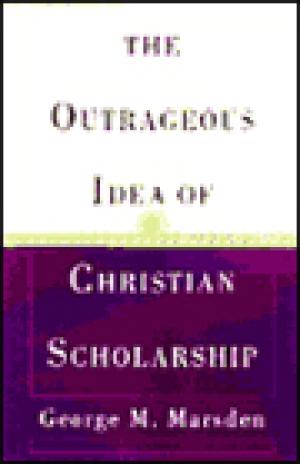
At the end of his 1994 book, The Soul of the American University, George Marsden advanced a modest proposal for an enhanced role for religious faith in today's scholarship. This "unscientific postscript" helped spark a heated debate that spilled out of the pages of academic journals and The Chronicle of Higher Education into mainstream media such as The New York Times, and marked Marsden as one of the leading participants in the debates concerning religion and public life. Marsden now gives his proposal a fuller treatment in The Outrageous Idea of Christian Scholarship, a thoughtful and thought-provoking book on the relationship of religious faith and intellectual scholarship. More than a response to Marsden's critics, The Outrageous Idea of Christian Scholarship takes the next step towards demonstrating what the ancient relationship of faith and learning might mean for the academy today. Marsden argues forcefully that mainstream American higher education needs to be more open to explicit expressions of faith and to accept what faith means in an intellectual context. Contemporary university culture is hollow at its core, Marsden writes. Not only does it lack a spiritual center, but it is without any real alternative. He argues that a religiously diverse culture will be an intellectually richer one, and it is time for scholars and institutions to take the intellectual dimensions of their faith seriously and become active participants in the highest level of academic discourse. (From the Publisher)
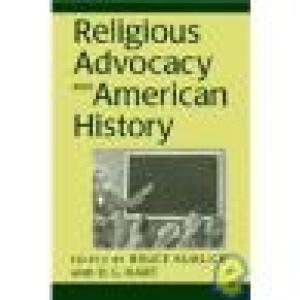
Religious Advocacy and American History explores the general question of bias and objectivity in higher learning from the perspective of the role of religious convictions in the study of American history. The contributors to this book, many of whom are leading historians of American religion and culture, address primarily two related questions. First, how do personal religious convictions influence one's own research, writing, and teaching? And, second, what place should personal beliefs have within American higher education? (From the Publisher)
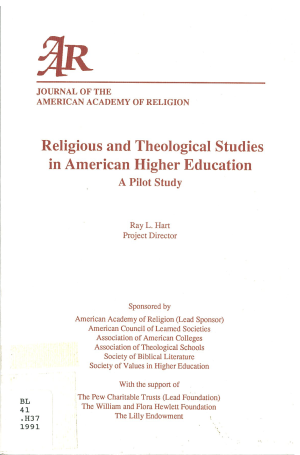
Journal Issue.
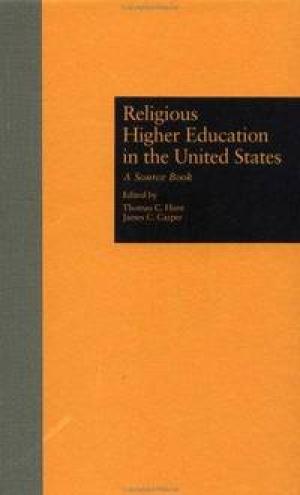
Higher education today suffers from lack of a clearly articulated purpose-a deficiency particularly challenging to religious-affiliated institutions. What is the relationship of secular learning to the faith that originally undergirded these institutions? This book offers the reader answers to this and other major questions currently facing denomination-affiliated institutions of higher education. Following a chapter on civil government's relationships to these institutions, 24 chapters survey the colleges, universities, and seminaries associated with denominations. Each chapter begins with an historical essay followed by annotated bibliographic entries covering primary and secondary sources dating back to 1986 on various denomination-connected institutions. There are 614 bibliographic entries, an epilogue on critical issues covered throughout the book, as well as a subject and author index. (From the Publisher)

During the twentieth century, theological and religious perspectives have been marginalized, if not utterly excluded, in many of our colleges and universities. The essays in this book argue in different ways for the critical, appreciative, inclusion of theological and religious perspectives in higher education. The contributors believe that even in our secular, religiously disestablished era, religion and God continue to occupy an important and dynamic role in personal and social life. If our colleges and universities are to fulfill their higher aspirations of educating whole persons for the real world in all of its diversity and challenge, we need to go bravely against the flow and "give God tenure." (From the Publisher)
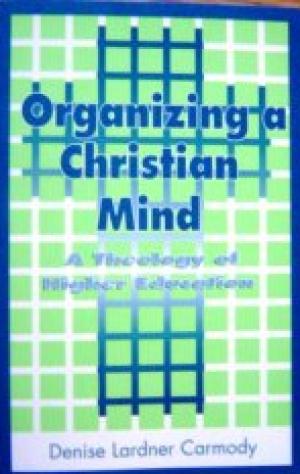
"The sadness I feel," writes Denise Carmody, "stems from watching the capitulation of good schools, both Christian and secular, to the pragmatism of recent times and their concomitant loss of a pervasive vision of their enterprise." Such capitulation has produced a serious crisis in American higher education, including also church-sponsored higher education, leading to a preoccupation with research and publication instead of teaching and to frequent inattention to ultimate human questions. Following an introductory discussion of teaching, research and publication, and "the difference that God makes," the book moves through such topics as human nature, physical nature, politics, divinity or ultimate reality, and education (including community services, academic freedom, and the arts and sciences). A concluding chapter focuses on vision in higher education, that is, gaining a clear sense of what a collegiate venture wants to do and the kind of curriculum and teaching that squares with what a college is trying to achieve. (From the Publisher)
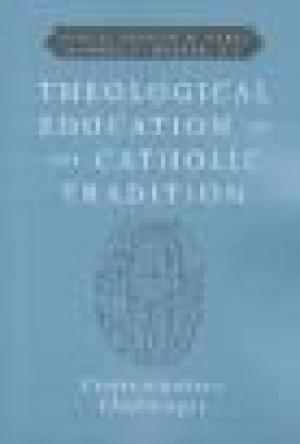
The aim of this book is both to raise questions about the contemporary theological enterprise and to suggest ways to improve theological education at the college, seminary, and graduate levels. With that in mind the editors have here gathered together important essays by leading theologians and prominent bishops that provide expert assessment of the present state of Catholic theological education and its future prospects, treating a full range of the most pressing topics, from undergraduate and graduate programs to the role of bishops and the task of inculturation. (From the Publisher)